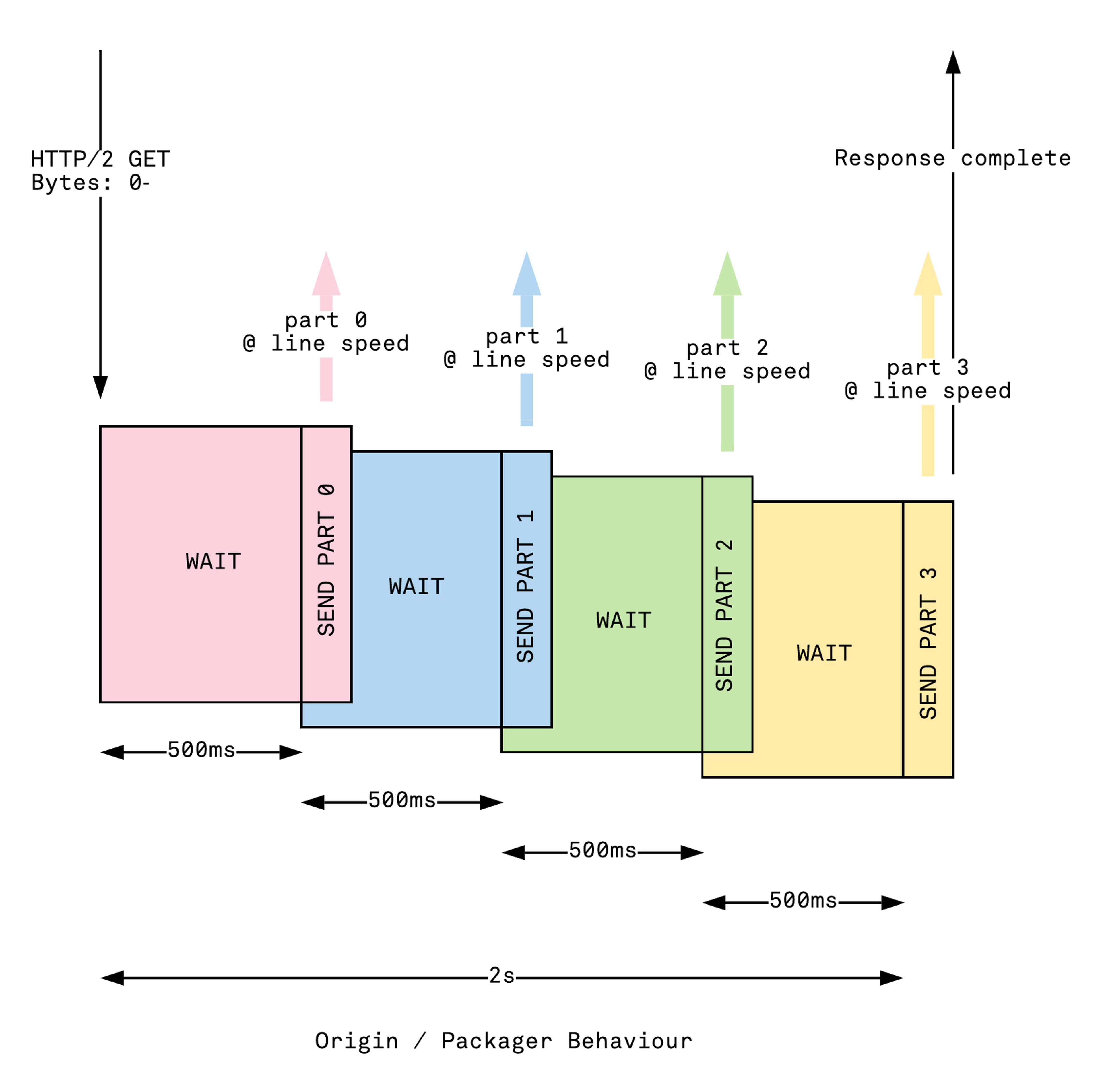YouTube has enabled a whole generation of filmmakers to share their work and develop a fanbase. Some creators produce shows in their own right, with a whole team of writers, actors and editors. These shows can be animations, parodies, comedy sketches and short films series.
However, YouTube can be a difficult platform to monetise effectively, even for an individual personality. This problem is especially challenging for a whole production team that has production-level costs.
As a result, we are increasingly seeing skilled and talented teams of content creators evolving beyond YouTube by hosting their own content. In some cases, even building video platforms from scratch, developing subscription models, utilising crowd-funding, and partnering with video streaming services.
A lot of these content creators may have focused on content derived from other franchises. Creating parodies of popular shows, animations made with video games, sketches based on pop culture. The successful ones have honed the skills necessary for original content production along the way: scriptwriting, voice acting, scheduling, directing, editing and even social media marketing.
Does this mean these content teams that create long-running shows, could start producing completely original content? Are they able to develop a business model that can support themselves and their work?
Some already have.
YouTube is where the cinematic talent of tomorrow are honing their skills, but they aren’t going to stay there forever. It is now much easier to produce, edit and share video than it was ten years ago, however, the technology to host video and build your own platform has yet to catch up.
Perhaps for you, these content creators are a possible customer, partner or client. This is where the likes of Netflix should be looking for talent for their next original show. This is where video technology should be looking for their future clients.
Rooster Teeth: The shining example
Rooster Teeth was started in 2003, prior to YouTube’s release in 2005, and rose to internet fame with a show called Red vs. Blue, a comedy machinima based on the Halo games. A machinima being an animation made using a video game, like a pre-existing set of puppets.
Today, Rooster Teeth is a fully fledged production company with studios in Austin, TX and Los Angeles, CA. They host their content on both YouTube and on their own website RoosterTeeth.com which features its own subscription model to remove ads. Rooster Teeth receives 38 Million views every week and has a combined total of 16 Million YouTube subscribers, producing 28 original shows and a wide variety of other content.
Author’s Note: I accept that YouTube Subscribers is not an accurate measurement for success as it doesn’t reflect the number of videos watched or how long they are watched for. However, it is an easy reference number that gives a rough approximation for the awareness a channel has.
Red vs Blue is currently in its 15th Season, outlasting even Bungie’s control over the Halo franchise, development of which moved to 343 Industries in 2012 at the release of Halo 4, nine years after Red vs Blue started.
One of their most successful original shows is RWBY, a computer animated anime-style show. The award-winning show has a considerable following, with episodes averaging around 3 million views on YouTube alone, DVD releases in the UK, Australia, and Japan, is available on several streaming services, and even features cosplay icon Jessica Nigri as one of the voice actors.
In addition to this, Rooster Teeth also host a large collection of podcast and panel based shows, as well as entertaining videos such as the Slow-Mo Guys and live-action shows including Lazer Team.
Rooster Teeth is the shining example for any YouTube production team to follow, proving that you can take a wide variety of content and host it on your own platform with a subscription model that directly benefits the creators.
Burnie Burns, Rooster Teeth founder:
Every time the YT community has an algorithm/interface change meltdown and I remember I built my own website: pic.twitter.com/F4pkkNcGVt— Burnie Burns (@burnie) December 8, 2016
TeamFourStar: In a state of transition
In 2008 TeamFourStar created the parody-comedy show Dragonball Z Abridged, based on the iconic anime Dragonball Z. For the past 8 years they have risen to over 2.5 million YouTube subscribers, producing 75 episodes across 3 abridged shows and abridging 10 Dragonball Z movies, with viewership regularly in the millions.
Three days since the YouTube release of their latest episode, Episode 58, it had already exceeded 2 million views. Two weeks later and it’s almost at 3 million.
DBZA is not the only abridged show on YouTube (nor the only one based on the Dragonball franchise), but it is arguably the most successful and best produced. TeamFourStar has even gone so far as to host a competition for abridging shows, encouraging more competition in the genre and showcasing that talent to their large fanbase.
Abridging a show usually involves taking a popular anime or cartoon, condensing it and parodying it, often with all new dialogue and sometimes quite advanced graphical edits, that sometimes cross the thin line into original animation.
Outside of YouTube, TFS host their content on TeamFourStar.com, where episodes are released several days earlier before being uploaded to YouTube. This is necessary for TFS for several reasons.
As we mentioned, effectively monetising content on YouTube to support a full cast of actors and a production team is pretty hard. But, the larger issue for TeamFourStar is current copyright laws.
As TFS does not own Dragonball Z, they cannot monetise that content through Ads. As a result, TFS has expanded into a huge amount of video game related content in the “Let’s Play” genre with which they can utilise YouTube’s monetisation options.
However, despite having never monetised their abridged shows, they are still regularly subjected to copyright claims being brought against them.
In theory, TFS and content created by many YouTubers falls under Fair Use, which allows for copyrighted material to be used for review, criticism, teaching, reporting and research. This also usually requires that the content is “transformative”, in that it adds new expression or meaning to the original, and that it does not harm the copyright owner’s ability to profit from their original copyrighted material.
Largely comedy and parodies have fallen under Fair Use as this content is often transformative - new voices, new character personalities, new storylines, etc. - and is not a replacement for purchasing the original product. In fact, to appreciate the likes of Dragonball Z Abridged or Red vs. Blue, being familiar with the original product is a given assumption.
TeamFourStar have even gone so far as to make sure every single one of their episodes starts with “This a non-profit fan based parody….please support the official release”.
However, this has not stopped companies, individuals and bots from abusing YouTube’s copyright claiming tool or being overzealous in its use. Nintendo has an infamously aggressive automated system that has shut down a lot of video game content featuring Nintendo games on YouTube, content which other companies have recognised as essentially free advertising, and a cornerstone of their community.
In a video released by TeamFourStar, they calmly express their frustration with this system, as Funimation, who distribute the Dragonball Z in the US, have a friendly relationship with them, and at no point during copyright claims has the plaintiff attempted to contact them directly. Neither has the claimant followed up with the issue after YouTube has ruled in their favour, reinstating their videos and their channel.
In this case, it would appear that the culprit might be a flawed automated system rather than a company truly believing they have a right to a copyright claim. However, copyright claims clashing with definitions of Fair Use has been an ongoing battle, not so much between YouTube and content creators, but between existing copyright laws and the modern era of content.
This debate is somewhat beyond the scope of this article, but the implications for aspiring content creators is clear: if you can host your own video, you should.
Not only will it give you direct control over monetisation - as YouTube has had some controversy with its 45/55 ad revenue split with creators - it will also protect you from how YouTube currently enforces copyright law in this arguably flawed manner. The real story here though is that copyright law is desperate need of an update to reflect the way we consume and create content today.
To this end, YouTube channel Linus Tech Tips (4m Subscribers) which features custom PC builds and hardware reviews, is going so far as to build their own video platform codenamed FloatPlane (because it may not fly, but at least it won’t sink) for all content creators to safely host their video. Proof that if you don’t build it, someone else will.
Currently, TeamFourStar is mostly supported by their Patreon page. Patreon is similar to Kickstarter in that it is crowdfunding platforms, but instead of one-off projects, it focuses on repeating content, like YouTube videos. TFS currently has 2,612 patrons paying them $11,778 a month. This has allowed TFS to develop their own office and work towards a centralised studio.
Arguably, this is the position Rooster Teeth was once in before becoming a full production company. Can TeamFourStar start producing original shows, beyond parodies dependent on copyrighted franchises? Can they develop their business model to support their creative work, or will they continue to rely on Patreon?
I am very excited to see what TeamFourStar does in the future, and if they will expand the self-hosted side of their content. In the short term, self-hosting is a necessity for TFS, in the long run, it is the path to becoming a fully independent production team.
Self-Hosting, Patreon, Partnership or all of the above?
So now we are starting to build a more comprehensive picture. Imagine you and your friends have a successful YouTube show with a large following. You want to go full-time, but the monetisation options are not robust enough for you to achieve this goal and selling custom t-shirts isn’t going to cut it.
You can start to host your own content like Rooster Teeth, or you could reach out to your fans through Patreon like TeamFourStar. Perhaps you will do a little bit of both.
Another option would be to get picked up by a production network like RocketJump did with Hulu.
RocketJump is a team of filmmakers, directed by Freddie Wong, and has reached 7.7m YouTube Subscribers. Typically, they do action-packed comedy shorts, often featuring video game culture (RocketJump itself being a gaming reference itself). My personal favourite is still Flower Warfare from 2010, now at 11.7m views.
After the success of RocketJump: The Show on Hulu, which started in 2015 and was largely an expansion of the content they produced on YouTube, the partnership continues with an original science-fiction show called Dimension 404 which was released this April.
From Hulu’s standpoint this strategy makes a lot of sense. There are regularly headlines about the bidding war for content between Netflix, Amazon Video and other video streaming services reaching billions of dollars. But why spend some much on getting content, when you could spend that money on your own exclusive content?
Game of Thrones from HBO has been a global phenomenon, while Netflix’s Stranger Things attained a ridiculous amount of recognition in a very short time. Spurred by this success, it’s not surprising Netflix aims to fill half of its library with original content.
So working with RocketJump is an obvious answer for Hulu. All-new, original content created by filmmakers who already have the skills, talent and a pre-existing fanbase. They even have the added bonus of being familiar working with a comparatively small budget. It’s little work on Hulu’s part, and all they have to do is support an existing production team.
Personally, it surprises me that more streaming services that produce their own content are not exploring the diverse and skilled pool of YouTube talent. Usually, these YouTube creators have all the skills needed to make a great original, the one thing they don’t have is the kind of funding that a streaming service or television network can provide.
YouTube Red did experiment with giving well-known YouTuber PewDiePie (55m subscribers) his own show titled Scare PewDiePie, which is exclusive to YouTube Red subscribers. However, YouTube terminated that relationship following PewDiePie making Nazi references in some of his videos.
This is by no means the only YouTube Red exclusive show featuring well-established YouTube personalities. Joey Graceffa (7.6m subs), MyLifeAsEva (7.9m subs) and Game Theorists (8.1m subs) also have their own shows. However, the media fallout from the PewDiePie incident has probably made some producers a little apprehensive about exploring similar partnerships.
Perhaps the success of the RocketJump’s Dimension 404 will allay any doubts and encourage other streaming companies to pursue such partnerships with content creators.
Ellation is certainly taking an interesting middle approach with VRV. This streaming service, currently in beta combines CrunchyRoll, Funimation, Rooster Teeth and Seeso’s original shows with select YouTube channels including Geek & Sundry, Nerdist, Machinima and Tested.
CrunchyRoll is an anime streaming service, who recently partnered with Funimation’s similar service. They both work on the principle of offering content up front, but if you pay a subscription fee you can watch ad-free. This makes them a natural pairing for shows hosted on YouTube as they too are readily available, but with adverts.
With VRV you can pay a bundle subscription fee to get everything on the service ad-free, or purchase subscriptions for individual channels, bringing together the likes of Rooster Teeth and other YouTubers with the biggest anime cartoons, all under one roof. This is an interesting middle ground between YouTube and Hulu’s current approaches to partnerships, as it focuses less on directly supporting original content and more on building an accessible shared platform.
If this relationship is favourable for content creators, could original content be in the future for VRV?
So why does this matter?
Traditionally, video production and technology products have been sold to large production companies with comparably large budgets to work with, but in recent years production equipment and software have become more accessible.
I remember in 2009 a friend of mine showed me a short film, and blew my mind by telling me it was filmed on a DSLR camera. Since then, shooting on DSLRs has become standard practice for many filmmakers, and it's become easier than ever to start producing video.
Thanks to ad-supported social-sharing sites like YouTube and Twitch, budding production teams have been able to flourish by capitalising on how much easier it is these days to produce and share content.
At least, to a point.
Video hosting, video players, transcoding and other streaming technology has yet to become as readily accessible, and this is the chasm many content teams are looking to bridge next. Having a successful show on YouTube is like having a great job while you live with your parents. You love what you do, but it would be better if you were master of your own home.
Self-hosted video, custom players, better and less intrusive monetisation options, cloud editing, and even video monitoring, are all still out of reach for most content creators. When these tools become more accessible, in terms of use and cost, that is when the post-YouTube revolution can start to really pick up steam.



